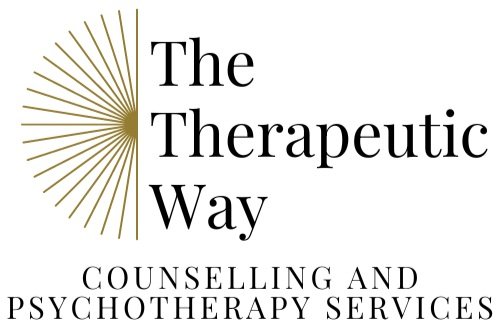
Therapy for Trauma and PTSD
Heal from relational trauma
Support for Trauma & PTSD
Relational Trauma
Betrayal Trauma
Childhood Trauma
Intergenerational Trauma
Post-Separation Abuse
Narcissistic Abuse Recovery
Somatic Therapy and EMDR
Support for individuals, couples, and families. Relational and betrayal trauma is a form of trauma (emotional, physical, sexual, psychological) that happened within close relationship with the people you love, been told you have to love, or have to be in relationships with.
The most important thing you have to know is that it is not your fault. It’s not because you are “codependent” or “foolish” that you got betrayed. Betrayal is the action of the betrayer.
Therapy with us, you will learn to trust yourself, others, feel secure, and be in control.
We want you to Feel and Be safe.
Are you suffering from past or on-going trauma in your relationships?
While we can’t change the past, we can learn to leave the past in the past and change the present and future.
We help you get out of the “fight/flight/freeze/fawn” state and make sure you are living, not just surviving.
In relational trauma therapy, we help you heal from emotional wounds, abuse, and betrayal that were caused by toxic or hurtful relationships. Whether it’s from your childhood or during your adulthood, trauma can leave us with lasting scars.
Our approach to Trauma Therapy:
We believe that healing begins with acknowledging your pain and embracing the journey towards recovery. Through compassionate guidance and evidence-based techniques, our certified trauma and PTSD therapist in Burlington, empower you to break free from destructive patterns and forge healthier, more fulfilling connections.
We use holistic approaches such as somatic therapy, IFS, and EMDR to help you overcome what you have been carrying
Our therapists are not only trauma-informed but specialize in trauma recovery
We recognize that healing goes beyond addressing past wounds—it also involves understanding and navigating the challenges that come with relationships.
We understand the deep impact of relationships in your life, as well as the grief when those relationships are no longer serving you.
Who do we work with in trauma therapy?
We offer counselling for trauma for individuals, couples, and families. We help those who…
Suffered from trauma in a relationship (infidelity, betrayal trauma, relational trauma, abuse, post-separation abuse)
Feel like the love you have for a person is like an addiction…you can’t seem to end it.
Suffering from memory loss, dissociation, flashbacks, nightmares, chronic pain
Feeling on edge, triggered easily, lack of sleep/appetite, overthinking
Feeling down, anxious, “feel like you are going crazy”, and not confident in your decision making
Intense emotions such as anger, irritability, or not feeling any emotions as all
How can our therapists in Burlington support you?
We can increase your coping skills and help you regulate your emotions better
Helping you restore broken relationships and helping you reconnect with people in your life
Address trauma related symptoms such as intrusive thoughts, avoidance behaviours, your state of being
Heal from trauma and PTSD after childhood trauma and trauma in adulthood
Manage self-esteem, shame, guilt, and emotional distress
Break free unhealthy relationship patterns and feel more secure in your relationship
It’s not your fault it happened, but you owe it to yourself to heal.
Some signs that Therapy for Trauma is for you:
You keep getting triggered in your relationships
You have experienced some sort of betrayal in your close relationships
You feel afraid of bringing up your need because they get defensive or that’s when they decide to bring up another unrelated issue
You find it hard to say no or assert your needs without guilt.
You feel on edge, confused, anxious, hopeless and emotionally and mentally exhausted
Therapy for Trauma at The Therapeutic Way
Who we are…
Our therapists are trained in various forms of trauma modalities to support you, including Somatic Therapy and EMDR. In fact, relational and betrayal trauma is all we work with.
We offer a safe and non-judgmental space for you to share your experiences and process the trauma. We know it’s not easy to talk about the past, sometimes is feels best to avoid it. But we know very well that avoiding it, can cause more problems. We use a gentle approach to support you. We will be there with you at every step of the way.
We use an integrative, trauma-informed, and holistic approaches to help you. We use the trauma informed care model to ensure you feel safe with us. We work with your thoughts, emotions, physical sensations, nervous system, and a lot more. This means even if textbooks says something, if it does not work you, then it doesn’t. Your wellbeing comes first.
Reach out today to book a session with a trauma therapist today.
Therapists Specializing in Trauma and PTSD
THE THERAPEUTIC WAY
Frequently Asked Questions
-
The length of trauma therapy depends on the individual and the nature and impact of the trauma on you. Some people see improvement after a few sessions, others may see improvement after a few months. If you are attending therapy for trauma, ideally you want to see your therapist once a week.
-
It is possible to feel worst about the trauma as you are now remembering and talking about the event. But a skilled therapist, will help you in this process by creating a safe and supportive place for you.
-
Yes and no. When talking about the betrayal trauma, we are giving it “form”. It helps takes us out of oblivion and we make sense of it. This is important because when you recognize it, you are less likely to end up in another form of traumatic relationship and are less likely to pass it on to the next generation. While talking about the trauma helps, often, some people don’t remember their trauma or can’t speak a word of it because it hurts too much. That’s ok. As somatic therapists, we also use body approaches to help you heal from trauma (and you won’t have to reiterate the story).
-
A trauma therapy session is divided into three phases, safety and stabilization, remembrance and mourning, and reconnection and integration. You will learn coping skills to manage trauma symptoms, processing the trauma, work with the leftover of the impact of trauma, skills for releasing trauma stored in the body, and more.
Safety and stabilization: help you regain a sense of safety and security. We will work on coping skills, building up your strengths and resources, grounding and mindfulness skills.
Remembrance and mourning: processing the trauma, mourning the losses associated with the trauma, and making meaning of the trauma. This is where healing takes place.
Reconnection and integration: helping you create a new sense of self and future. At this stage, the trauma is no longer defining you. You will learn to build resilience, you’ll have a new sense of purpose and goals. You’ll move forward without letting the trauma define you.
Start living now!
We offer a 20 mins free consultation so we can discuss how therapy can help you.
Trauma therapy for Ontarians offered virtually and in-person. Trauma counselling in Mississauga, Burlington, Oakville, Hamilton, and onlineFAQs
Please reach us at info@thetherapeuticway.ca if you cannot find an answer to your question.
-
Fees
Individual therapy: 50 mins, 75 mins, 90 mins: $150- $180 +HST
Couples therapy: 50 mins, 75 mins, 90 mins: $180- $220 +HST
Family therapy: 50 mins, 75 mins, 90 mins: $180- $220 +HST
Cancellation fee is charged as follows:
Less than 24 hours before the appointment: 50% of session rate
No-show appointment: 100% of session rate
In case of illness or emergency, one time exemption and thereafter we require 24 hours notice
Arriving beyond 20 minutes late will require a re-scheduling of your appointment.
-
Yes, we do.
It is recommended that you reach out to your insurance provider before our session to confirm whether your services are covered by a registered psychotherapist and eligible for reimbursement.
After our session, you will be provided with a receipt that includes all the information required to submit to your insurer for reimbursement. If you have not been reimbursed, remember to keep your receipts to claim for tax deductions as medical expenses on your personal income tax filing.
-
The type of therapy that is best for you, depends on you as a person and the reason you are seeking therapy. There are different types of therapy, such as somatic-based therapy, cognitive behavioural therapy, trauma-informed therapies, holistic therapy, existential therapy, and more. The type of therapy that is right for you will depend what you are looking for. While you may have an input in this, majority of the time the therapist will know what is best suited for you and will let you know.
At The Therapeutic Way, we work with clients using an integrative approach to therapy, meaning using different modalities to suit your needs. We use a trauma-informed, holistic, and relational approach to working with you. Click here to learn more.
-
The difference between psychotherapist, psychologist, and psychiatrist, depends on education and scope of practice.
Psychotherapist, psychologist, and psychiatrist can provide therapy called talk therapy.
A psychotherapist can provide therapy under the College of Registered Psychotherapist of Ontario, a psychologist can provide therapy under the College of Psychologists of Ontario, and a psychiatrist can provide therapy under College of Physicians and Surgeons of Ontario.
Difference:
Psychotherapist Education: Master’s Degree or higher
Psychologist Education: PhD or PsyD.
Psychiatrist: MD
————
Psychotherapist: Can’t diagnose
Psychologist: Can do assessment and diagnose
Psychiatrist: Can do assessment, diagnose, and prescribe medication
————
Psychotherapist Training: Counselling and focus on therapy techniques
Psychologist: Focus on clinical research and assessment
Psychiatrist: Use medical treatment such as prescribing medications for mental health conditions
Before seeking help, it’s important to know what you need and are seeking. A consultation call can help you decide.
At The Therapeutic Way, we are registered psychotherapist with the College of Registered Psychotherapist of Ontario.
-
The term psychotherapy and counselling are often used interchangeably with some slight differences. Psychotherapy refers to the treatment based for psychological disorders and mental health issues, such as depression, anxiety, PTSD, ect. Counselling refers to wellness support and providing insights and clarity which leads to growth or personal betterment.
At The Therapeutic Way, we provide both psychotherapy and counselling.
-
Online therapy is as effective as in person therapy. What is most important with any format of therapy is the strong therapeutic relationship between you and your therapist. Online therapy is a good option when coming in-person is not feasible, when you have dependents at home, and it is also more convenient.
At The Therapeutic Way, we offer online therapy and therapy by phone from the convenience of your home. Click here to learn more about our online therapy.






